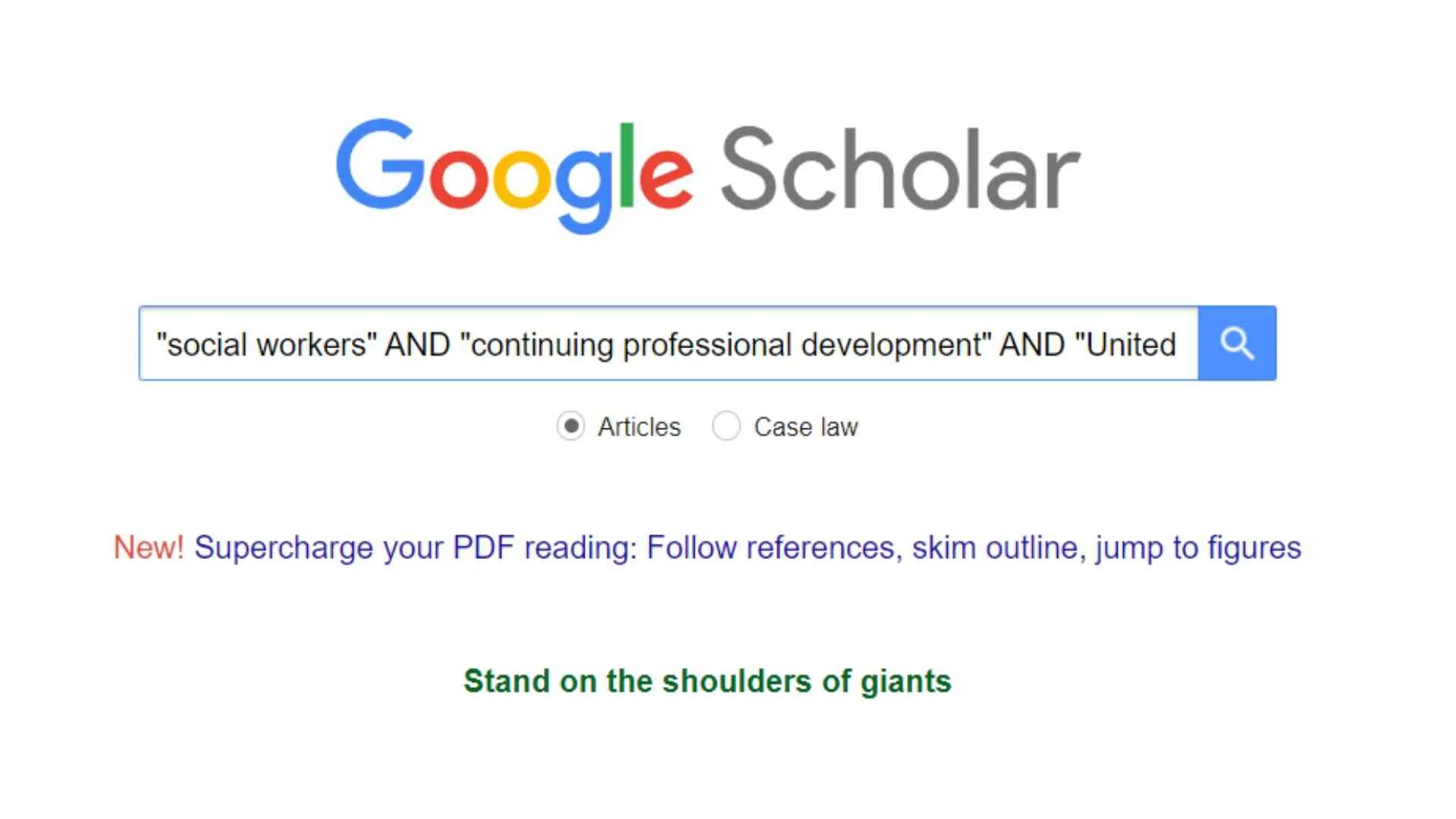How to start your literature review - a guide for PhD students who are STUCK!
Stuck? Struggling to get your PhD literature review out of the starting blocks? This is COMPLETELY NORMAL! Overwhelm is very common at the start of your literature review.
Have you ever had one of those dreams where you want to run but your legs just won’t move, you’re rooted to the spot? Or when you want to say something but the words just won’t come out? It’s kind of like that, right? You want to start your literature review, you’re super keen to get it underway, but, urgh! How?!
Why is the PhD literature review so hard to start?
Your PhD literature review is not like your masters or undergraduate dissertation literature review, it’s a whole other beast. It’s more extensive, it’s more in depth, the expectation is a lot higher.
So, if you’ve got any little literature review anxieties left over from your previous dissertations, something you didn’t quite nail, something your supervisor was really critical about in their feedback, that’s probably going to be making you feel a little inadequate right now.
Therefore, the first thing we need to get really, really clear on is that you CAN do this.
You are 100% capable of producing a stand-out PhD literature review.
You wouldn’t be on a doctoral program if you weren’t capable and you have a considerable track record of academic success behind you.
If there were things you weren’t particularly great at in previous literature reviews, you can improve them. Okay?
Make sure you think back to the feedback you had on previous literature reviews and just keep that in mind as we go through the steps you need to take now.
Let’s get into how to start that literature review.
(1) Be intentional – go in with questions
The reason a lot of PhD students feel massively overwhelmed by their literature review is because they just jump right into it with the aim to “review the literature”.
That’s not going to cut it at doctoral level.
You can’t just jump into the ocean of literature around your topic and just hope you’ll figure it out as you’re swimming around.
You need to go in armed with some questions you want the literature to answer.
Now, these aren’t your overarching research questions. Don’t get me wrong, those are going to be helpful, but you need some more specific questions that you develop FROM THEM.
Let’s take a look at an example of how we can develop some literature review questions from a set of general research questions.
Let’s say our PhD is looking at Mid-Career Social Workers Experiences of Professional Development: Balancing “the job” with climbing the career ladder.
Here are our general research questions:
What are the experiences of mid-career social workers regarding professional development?
How do mid-career social workers perceive the balance between their current job responsibilities and career advancement?
What challenges do mid-career social workers face in pursuing professional development opportunities?
What strategies do mid-career social workers employ to navigate between their job demands and career aspirations?
These questions are not quite specific enough to guide our literature review, so we need to pinpoint the key themes and concepts within them.
Grab a pen and paper and just start brainstorming around your general research questions.
Break down each general research question into sub-questions, hone in on specific aspects of them.
Think about subtopics, contextual factors, related things and note all that down.
Let’s take a look at our example again, here are some literature review questions we might develop from those general questions.
What are the existing models/frameworks of professional development for mid-career social workers?
How has the concept of career advancement evolved in the context of social work profession over time?
What are the common barriers encountered by mid-career social workers in accessing professional development resources?
What organisational factors contribute to or hinder mid-career social workers' ability to engage in professional development activities?
How do mid-career social workers perceive the impact of professional development on job satisfaction and overall career trajectory?
What are the best practices identified in the literature for promoting a balance between job responsibilities and career advancement opportunities for mid-career social workers?
How do external factors such as societal trends, policy changes, and economic conditions influence mid-career social workers' engagement in professional development?
What role do mentorship programs or peer support networks play in facilitating professional growth and career progression for mid-career social workers?
What are the emerging trends or innovative approaches in professional development tailored specifically for mid-career social workers?
How do cultural and demographic factors influence the experiences of mid-career social workers in pursuing professional development goals?
These literature review questions will help guide your exploration of existing research and theory related to mid-career social workers' professional development experiences. But, what do you do with them? Well, that’s next!
Identify search keywords or key phrases from your questions
When have your literature review questions, grab a highlighter and go through them, identifying the nouns – the words that represent people, places or things. Like this.
This is going to get us to our keywords and key phrases to use in our literature searches.
Now, for each one, think about whether there are other words or terms that mean the same thing or are in the same ballpark.
For example, "professional development" might encompass terms like “continuing professional develop (CPD)”, "career advancement," "continuing education," or "skill enhancement."
“Mid-career” might be referred to as "intermediate career stage," "career midpoint," or "mid-level professional."
Also think about broader categories which your keywords or key phrases might fall within. "social workers" might be included in terms like "social service professionals," "human service workers," or "community practitioners”. This is super valuable to do because there might be studies out there that are useful for your literature review, that have included social workers in their samples, but might not be specifically about them. This is going to help you catch those studies in your fishing net.
Do that for all your keywords and phrases because they widen scope of your literature search, whilst still being relevant, and ensure you capture relevant studies and perspectives.
Get organised, whatever that looks like for you
Set up some kind of system to organise your literature search and literature review
You need to actually start searching for literature and be super organised in doing so, keeping a record of the searches you’ve done, the date you’ve done them on and what you found. Because if you don’t, you’ll get in a mess!
Therefore, before you start your search, set something up to record this. You might want to use a referencing management software like Zotero, Mendeley, or set up an Excel spreadsheet, whatever works for you!
Start your literature search
Use the key words and phrases we identified just now to conduct systematic searches in whatever place you want to look for literature – that might be Google Scholar, it might be an academic database, it might be in a specific journal.
To make sure you don’t end up with too many or too few search results, you’ll need to experiment combining the keywords and phrases using Boolean operators (AND, OR, NOT).
So, for example you might search for “social workers” AND “continuing professional development”, you’d find load of results so you might then narrow that down to a country by adding AND for example “United Kingdom” or by using filters on the platform where you’re searching, specifying you want these terms to appear in the title of the article, or a specific publication date window.
It’ll take a bit of trial and error, but you’ll get to a manageable number of results in the end, keep going! And - don’t forget to keep a log of the searches you’ve done, don’t just assume you’ll remember you did them. You won’t!
Identify relevant items and log them
Then look through the list of results, download the articles and items you want to read and crack on with reading them and keeping your notes on them in a safe place.
I have a few other blogposts that go into much more depth on the actual nitty gritty of how to read and critically review literature, which I will link to below:
Advanced PhD Literature Review Tips
Critical Analysis - In 4 simple steps!
The PhD Literature Review: Insider secrets!
Literature Review Structure: How many headings?
ChatGPT for Literature Review Writer’s Block
Need more help with your PhD literature review?
Check out my Complete Literature Review Guide - details below!


